Fears Of Venezuela Invading Guyana Grow
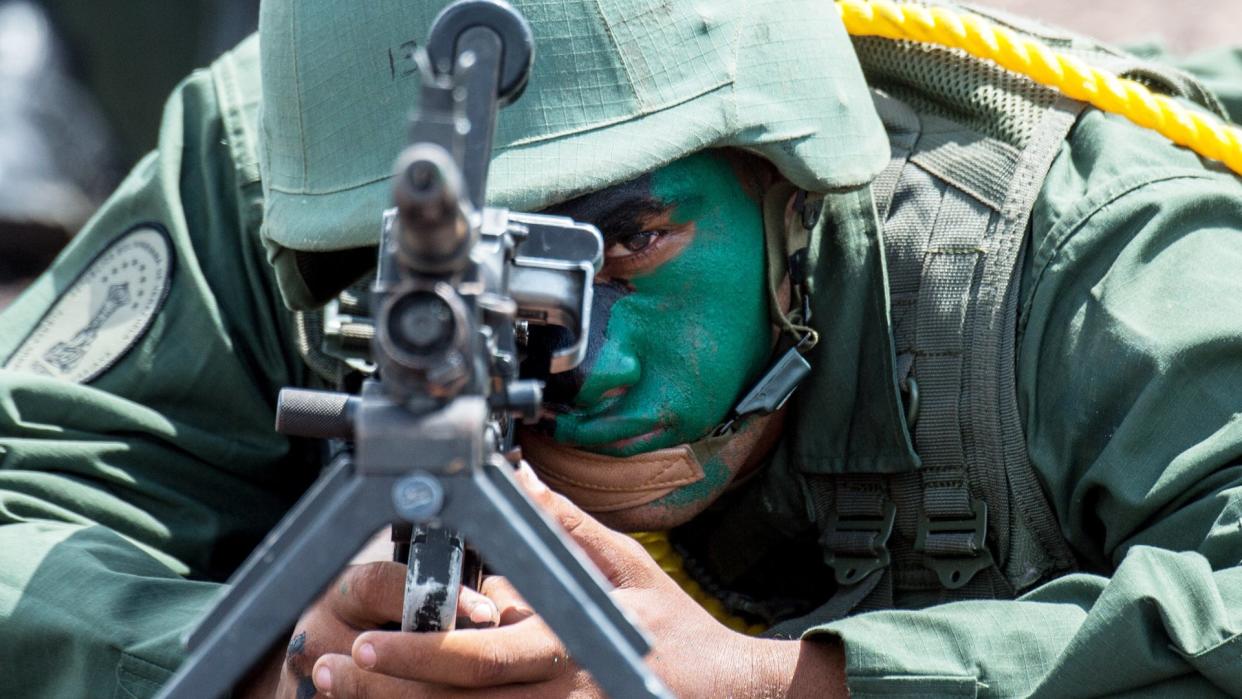
- Oops!Something went wrong.Please try again later.
Mainly covered by dense rainforest, the country of Guyana, on the North Atlantic coast of South America, is not an obvious flashpoint in 21st-century global affairs. However, a referendum in neighboring Venezuela has led to genuine fears about a possible land grab by authoritarian President Nicolás Maduro, who has his eyes on a portion of Guyana containing extensive oil and mineral reserves.
The territory in question is known as Essequibo, is roughly the size of the U.S. state of Alabama at 61,600 square miles, and makes up around two-thirds of Guyana. Around 120,000 of Guyana’s population of approximately 800,000 people live there, equivalent to 15 percent.
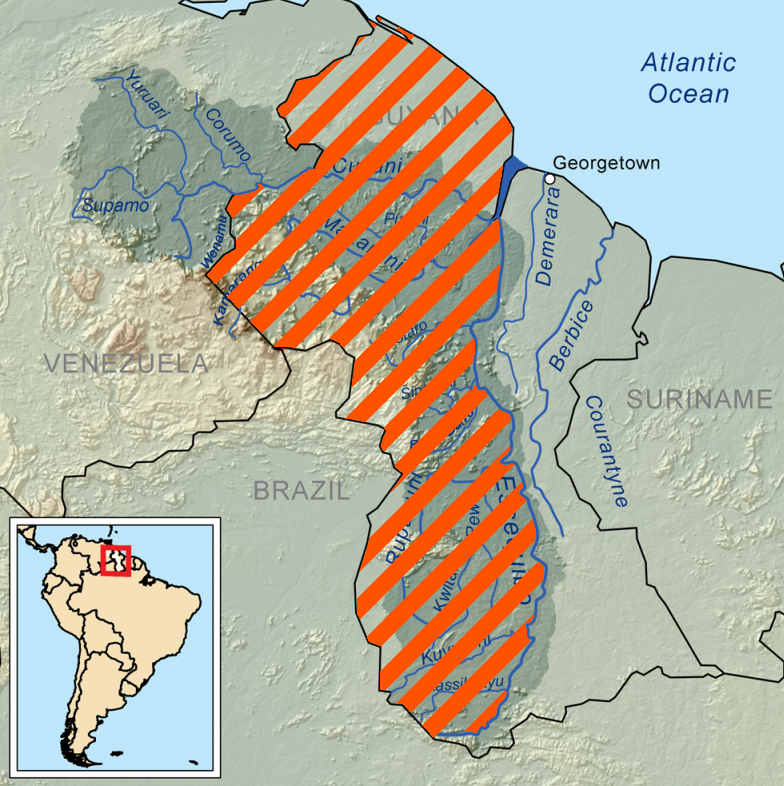
Venezuela has long argued that this land was stolen when the border was drawn up between the two countries at the end of the 19th century — more on that later. As well as valuable minerals — primarily gold and copper — the territory provides access to significant oil reserves in the Atlantic, the extent of which only became clear in 2015.
Now, the claims over Essequibo have become a rallying point for Venezuela’s Maduro, a president who has been regularly accused of authoritarianism and even dictatorship. In recent years, the legitimacy of his rule has been actively questioned, including extending to a short-lived U.S.-supported attempt to oust him.
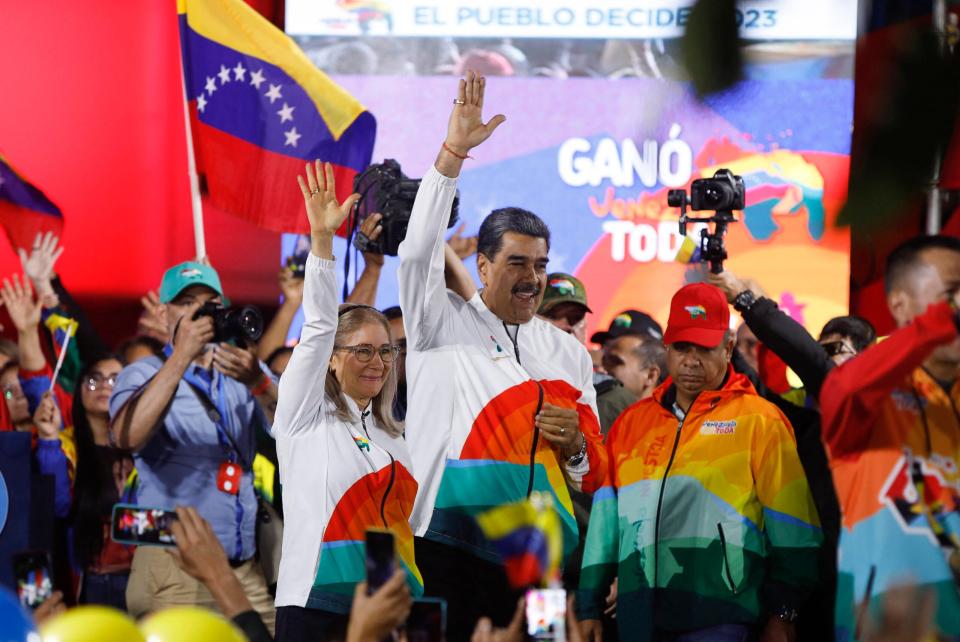
In a recent referendum, Maduro asked the Venezuelan population if they supported establishing a state in the disputed territory, granting citizenship to current and future residents, and rejecting a United Nations ruling that attempted to solve the disagreement between the two countries.
https://twitter.com/AssLatam/status/1731663583811908078
Multiple reports suggest that turnout for the referendum appeared to be low, although the country’s National Electoral Council claimed that more than 10.5 million ballots were cast, out of a total of around 20 million eligible voters. The council also claimed that more than 95 percent of voters approved of the territorial claim over Essequibo.
At the same time, electoral officials said that there had been “massive participation” and the polls, planned to be open for 12 hours, were kept open for an additional two.
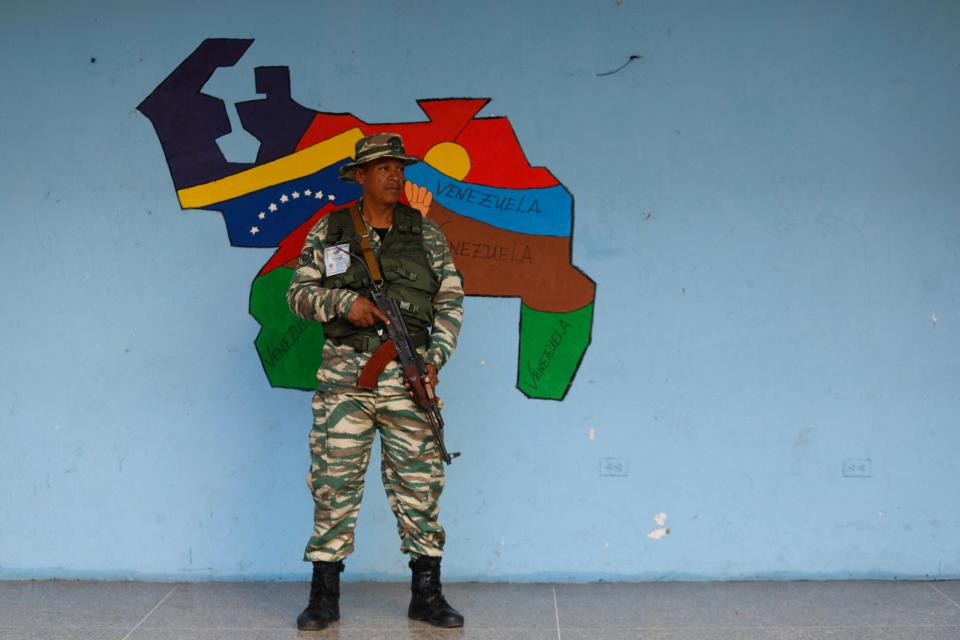
Regardless, the result showed that Venezuelans approved the claim, increasing concerns in Guyana that Maduro may now act upon it, potentially invading the territory or otherwise promoting instability that could lead to annexation.
“It has been a total success for our country, for our democracy,” Maduro told supporters after the results were announced.
https://twitter.com/SA_Defensa/status/1730975428951642218 https://twitter.com/ConflictsW/status/1730973220726030582
Ahead of the referendum, officials in Guyana were voicing their alarm, Foreign Minister Hugh Todd saying “People in the border region are very concerned.” Todd added: “Maduro is a despotic leader, and despotic leaders are very hard to predict.”
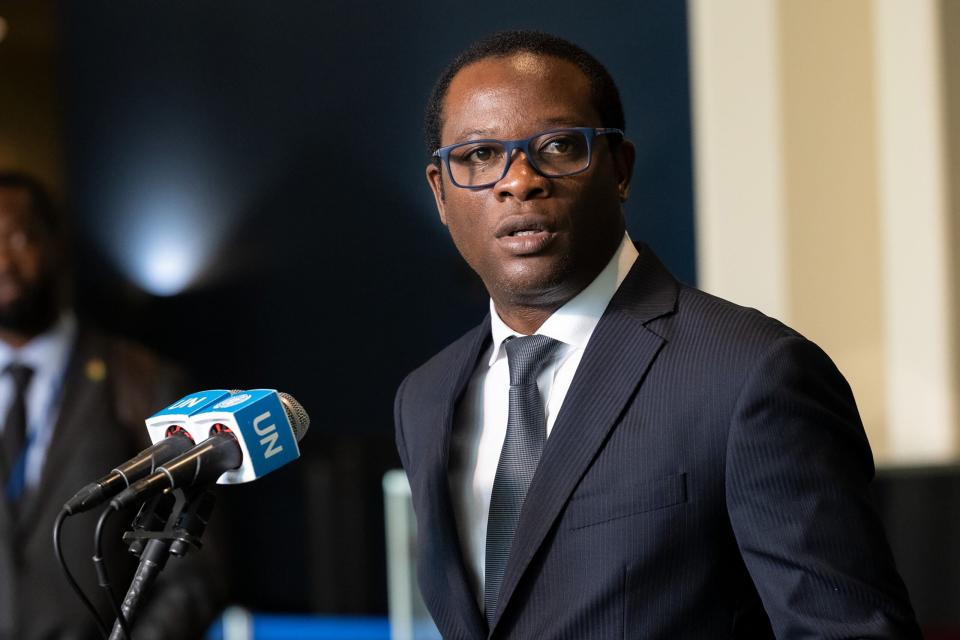
As well as in Guyana, there is disquiet in the United Nations, where on Friday the International Court of Justice (ICJ) warned Venezuela against taking any action that could undermine Guyana’s control over Essequibo.
ICJ President Joan E. Donoghue said that Venezuela’s government appears to be “taking steps with a view toward acquiring control over and administering the territory in dispute.”
“Furthermore, Venezuelan military officials announced that Venezuela is taking concrete measures to build an airstrip to serve as a ‘logistical support point for the integral development of the Essequibo,’” she added.
The establishment of a new airstrip at La Camorra, in the state of Bolívar, close to the border with Guyana, has been identified as a possible preparation for a military move against Guyana. Venezuelan news reports described the airstrip as having been built “for the logistical development of Essequibo.”
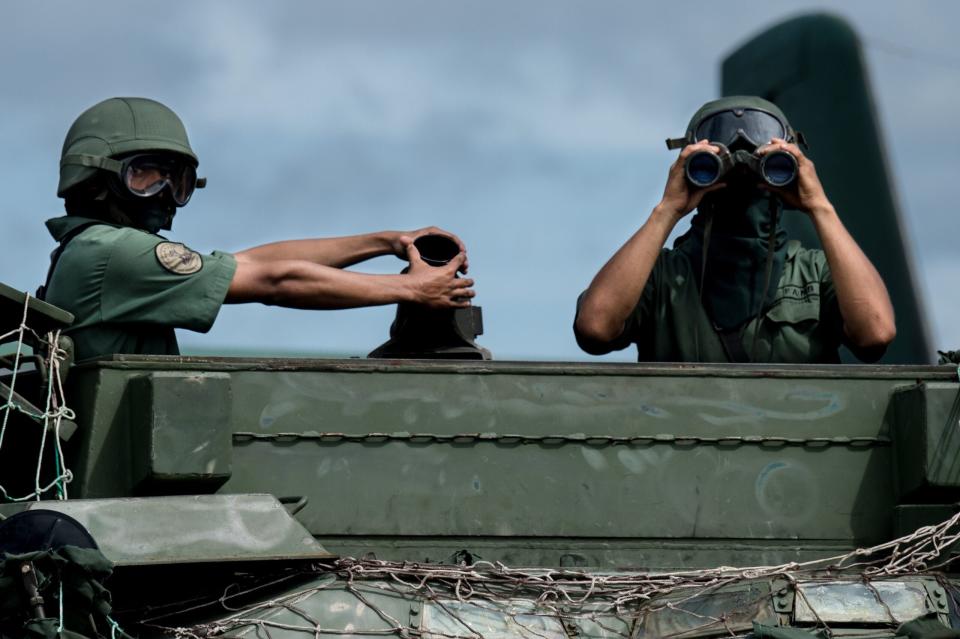
Brazil, which shares borders with both Guyana and Venezuela, has responded to the situation with military measures. The Brazilian Ministry of Defense has announced that it has “intensified its defense actions” and increased its military presence in the region, including deploying more troops closer to the border region.
The border dispute has long and complex roots. The current frontier dates back to 1899 when international arbitrators — not including Venezuelan representatives — established it. Before that, during the Spanish colonial period, Essequibo was within Venezuela’s borders.
For Guyana, the established border is legally binding, and it has requested the ICJ rule in its favor, although it has yet to do so.
Venezuela considers that it was cheated out of the territory by the international arbitrators back in 1899. It argues that a 1966 agreement to resolve the dispute effectively dissolved the original ruling. That latter agreement was also referred to in the referendum, one of the questions describing it “as the only valid legal instrument.”
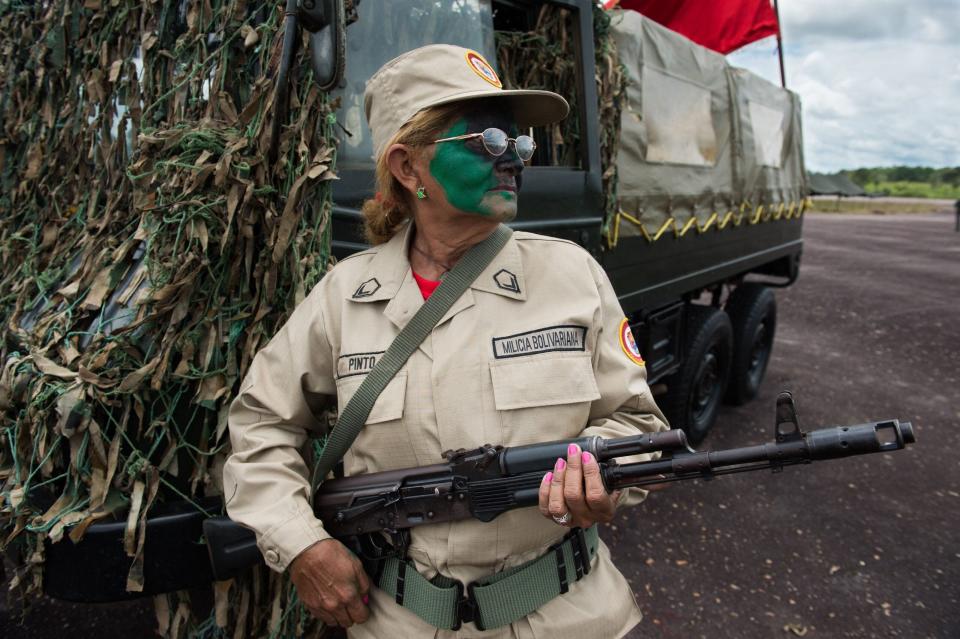
The dispute has more recently become a rallying cry for Maduro and his supporters, with claims over Essequibo being promoted as a point of national pride and a symbol of support for the president. There have also been claims that the entire referendum has been driven as a means of salvaging Maduro’s falling popularity ratings.
In military terms, Venezuela totally outclasses Guyana, with what is, on paper, one of the most capable armed forces on the continent. While there have been some concerns about its professionalism, its sheer size would present Guyana with huge problems in any conflict.
https://twitter.com/KawsachunNews/status/1731494817895448743
Venezuela has steadily increased its defense spending in recent years, from an estimated 1.8 percent of GDP in 2015 to 5.2 percent in 2019. This supports a force of between 125,000 and 150,000 active military personnel, while approximately 200,000 to 225,000 more serve with the Bolivarian Militia.
The country has historically procured arms from a variety of sources, including the United States, which prohibited any further defense sales to Venezuela in 2006. More recently it has forged close military relationships with China and Russia, who have provided various items of advanced equipment, including Su-30 multirole fighters and S-300V air defense systems, as well as other support and cooperation, including military exercises and deployments.
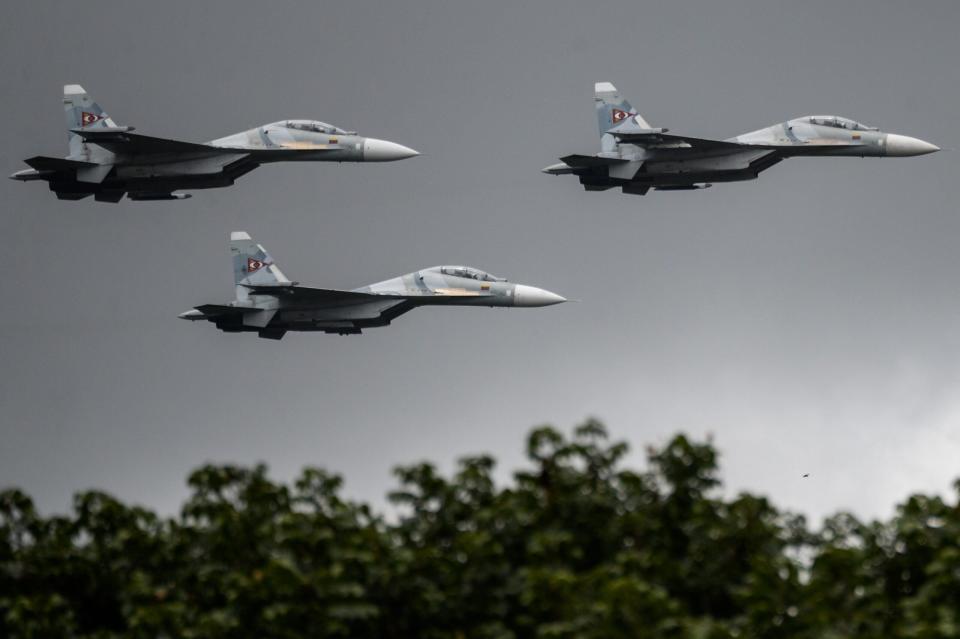
Powerful Venezuelan ground forces are spearheaded by around 21 combat brigades that include armored, artillery, infantry, motorized cavalry, and special operations forces, while the Venezuelan Navy is geared toward coastal defense and includes two frigates and a handful of ocean-going patrol ships; its two attack submarines are thought to be no longer operational.
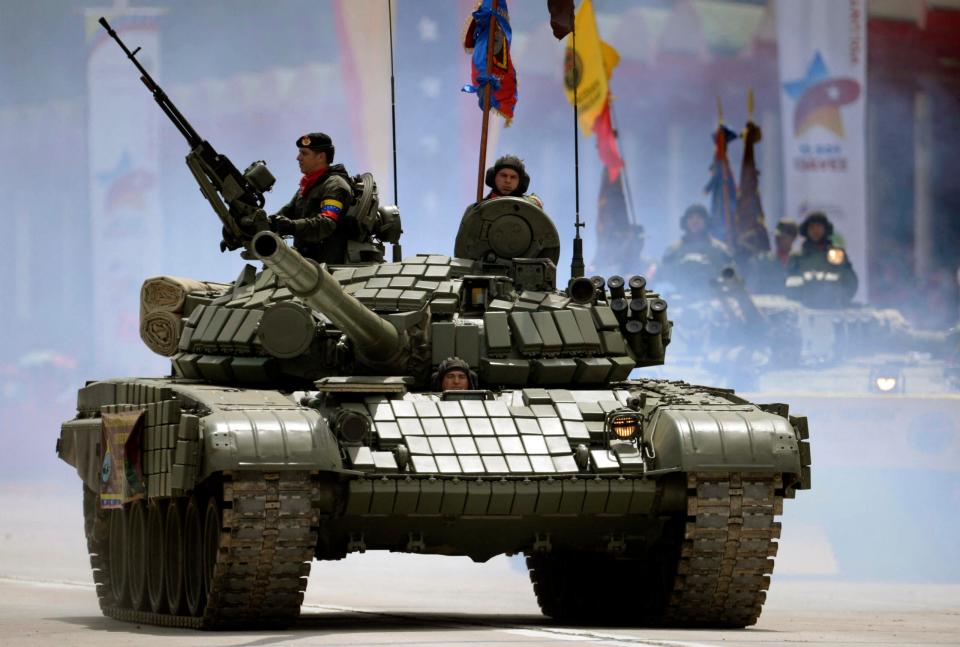
In contrast, the Guyana Defense Force receives only around 0.6 percent of GDP and has approximately 3,000 active-duty military personnel. Much of its equipment is procured secondhand and it operates no combat aircraft, tanks, or heavy artillery.
In practice, the primary role of the GDF is border security, as well as assisting civil authorities with law and order and disaster response. Nevertheless, the GDF maintains close relationships with Brazil, China, France, the United Kingdom, and the United States.
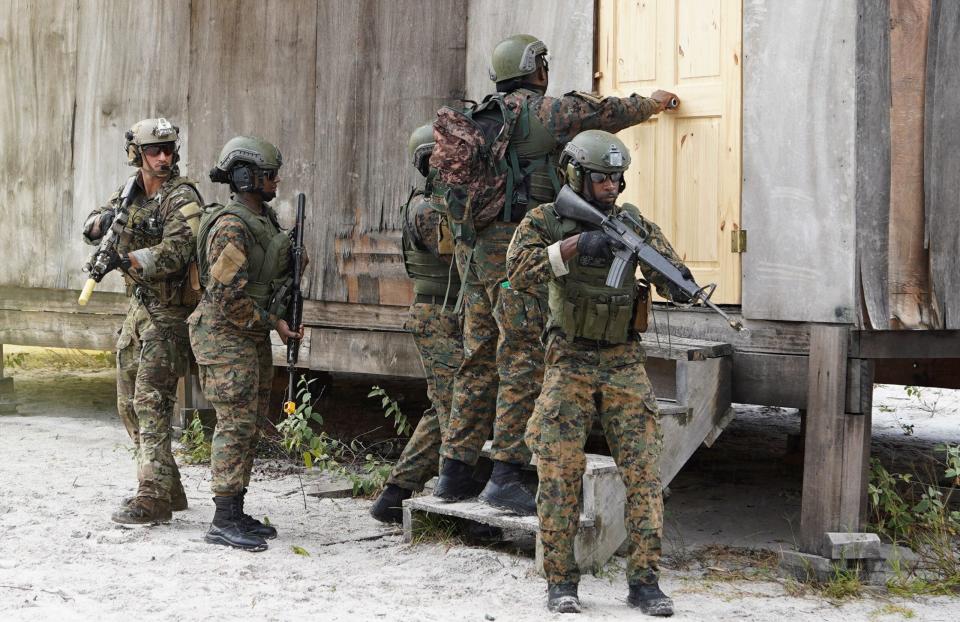
In a statement, Vladimir Padrino López, Venezuela’s interior minister, stoked tensions earlier this month by telling soldiers: “We are ready to defend [Essequibo] to the last drop of blood and sweat.”
For its part, Guyana is stepping up its efforts to reinforce relationships with the Caribbean Community (CARICOM) organization and the Commonwealth. Vice-President Bharrat Jagdeo has also raised the possibility of foreign military bases being established in Guyana.
“Any one of our international partners in the democratic free world will want to support Guyana’s cause because we have always followed the rules, procedures, and principles,” Foreign Minister Todd said. “Venezuela is doing the contrary to that. They are on the wrong side of international law, and they are on the wrong side of history.”
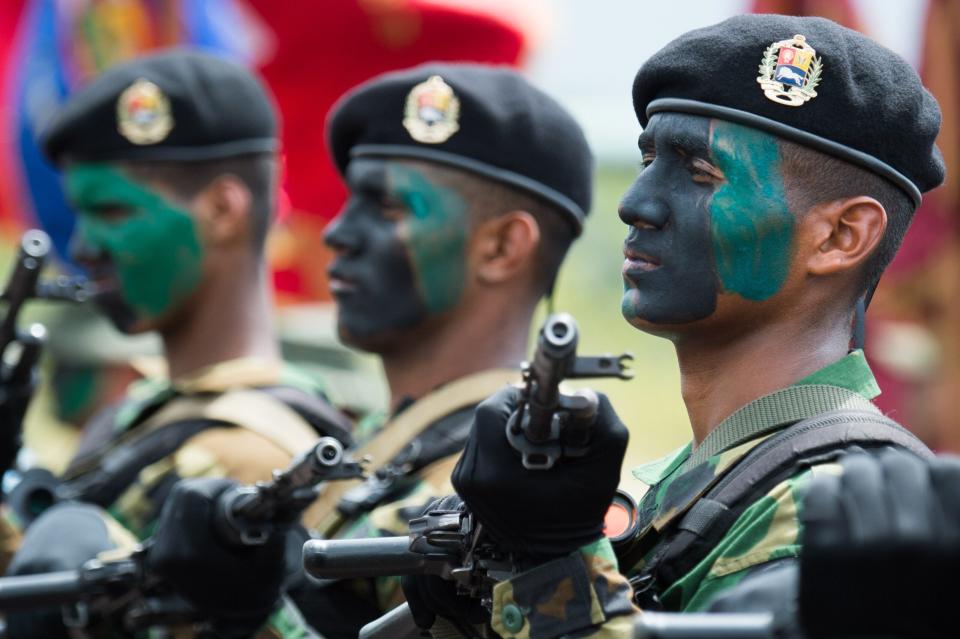
For Maduro and Venezuela, there appears to be a lot to lose. Short of allies on the international stage, Maduro had, more recently, been coming in from out of the cold somewhat. There had been reports of him allowing opposition groups to be more active in politics, selling oil to the United States, cooperating with the U.S. in Interpol investigations, and more. At the same time, especially since the full-scale Russian invasion of Ukraine, Maduro had been making efforts to distance himself from Moscow, once a very close ally. A move against Guyana now would only leave him further isolated.
Whatever happens, and however the international community responds, there’s little doubt that tensions between the two countries are at a greater level than at any other time in the recent past. Maduro’s call to incorporate a relatively huge portion of a neighboring sovereign state into his own country is, on the one hand, fairly unsurprising behavior for someone widely seen as an unpredictable leader. Now, emboldened by the result of a referendum, there’s an even bigger fear as to what might happen next.
Contact the author: thomas@thedrive.com

